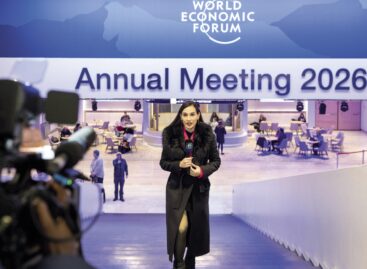EY: Brand loyalty is on the decline – almost only the price-value ratio matters
Consumers around the world are concerned about the rising cost of living, which is having a dramatic impact on their purchasing habits, according to EY’s latest international survey of more than 20,000 participants. According to the research, the well-known brand name is becoming less important, and pricing has become more important.
 Due to high inflation and the uncertain economic situation, more than half of people are particularly concerned about the rising cost of living. 47 percent of respondents in the international survey are also concerned about the economic situation in their country, especially members of generations Y and Z. For four-fifths of consumers, the price of the product is now the most important factor when making a purchase, and they pay more attention than before to what kind of goods they get for their money.
Due to high inflation and the uncertain economic situation, more than half of people are particularly concerned about the rising cost of living. 47 percent of respondents in the international survey are also concerned about the economic situation in their country, especially members of generations Y and Z. For four-fifths of consumers, the price of the product is now the most important factor when making a purchase, and they pay more attention than before to what kind of goods they get for their money.
As a result of the continuous price increase, eight out of ten consumers have changed their purchasing habits. Two-thirds of respondents are now just as satisfied with private label products as with the offerings of well-known manufacturers. In fact, 30 percent of consumers do not pay attention to brand names at all when shopping. 42 percent of respondents consider product developments by well-known companies – such as the introduction of new ingredients or recipes – to be cost-cutting measures rather than real innovation. The vast majority of those surveyed believe that the messages of brands do not match their own expectations, and 54 percent only buy well-known products when they are on sale – meaning that discounts often override brand loyalty.
“The continuous social and economic shocks of recent years have made consumers much more aware. They are looking for a favorable price-value ratio everywhere, and because of this, their commitment to brands is weakening. Manufacturers and distributors need to establish a much more personal relationship with customers, assess and understand their changing needs. Experts who are well-versed in both global and domestic trends and innovations can provide significant assistance in this,” emphasizes László Roland, Partner at EY Business Advisory Services.
Related news
The keys to corporate growth in 2026: AI, acquisitions and rapid transformation
🎧 Hallgasd a cikket: Lejátszás Szünet Folytatás Leállítás Nyelv: Auto…
Read more >Related news
Retail sales of organic products in Hungary increased by 13.9% – our country is the second fastest growing market in the European Union
🎧 Hallgasd a cikket: Lejátszás Szünet Folytatás Leállítás Nyelv: Auto…
Read more >Nearly 140 domestic suppliers, 60% growth – SPAR Regions Treasures program accelerates with AI solutions
🎧 Hallgasd a cikket: Lejátszás Szünet Folytatás Leállítás Nyelv: Auto…
Read more >







